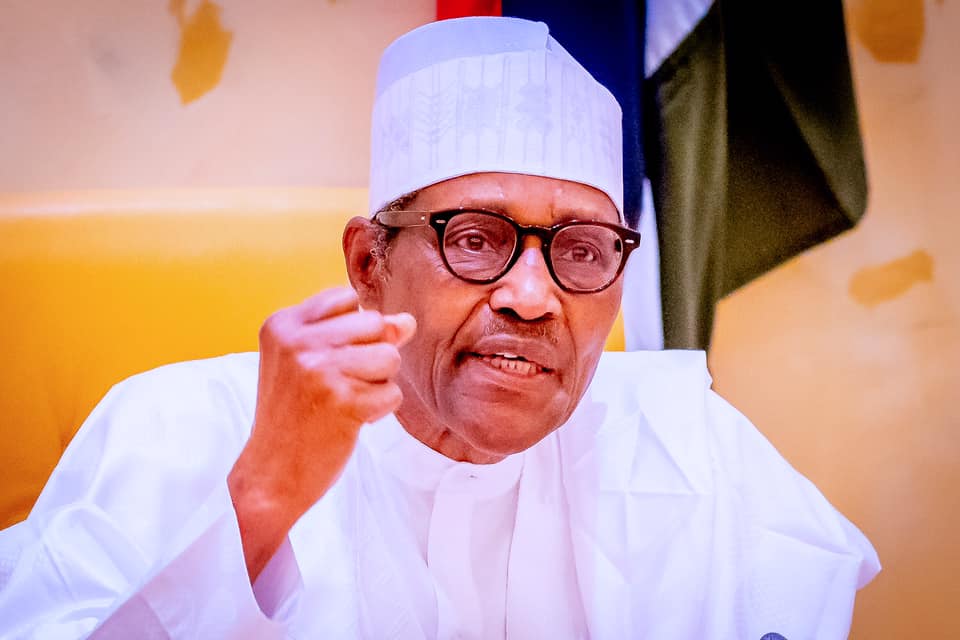President Muhammadu Buhari on Wednesday, January 11, 2023, said Boko Haram was just “fraudulent” and “a plot to destabilise Nigeria”.
The president stated this on Wednesday, January 11, 2023, when he hosted Buhari hosted members of the Catholic Bishops’ Conference of Nigeria, CBCN, at the State House in Abuja.
“Boko Haram was just fraudulent and a plot to destroy Nigeria. You can’t say people should not learn; the people need to grow intellectually,” Buhari asserted.
He told the delegation that the gains recorded in security will be further consolidated, promising that more attention will be given to the economy before the May 29 handover date
He said security had improved over the years, particularly in the Northeast where the focus had shifted to rebuilding infrastructure.
The president said during his visit to Borno, Adamawa, and Yobe States, the people confirmed the situation got better since 2015.
He told the Bishops that the government will continue to rebuild infrastructure in parts of the country affected by terrorist attacks.
Less We Forget: 130 Million Nigerians Have Sunk Into Poverty Under Buhari
The National Bureau of Statistics, NBS, recently released one of the most shocking reports since its establishment in 2007. Its yearly statistical report revealed that over 130 million Nigerians live below the poverty line. In plain terms, nearly half of the country’s population are poor.
The reports by the NBS raised countless mixed feelings and burning questions among local and international analysts, who marveled at the gigantic figures despite the country’s extensive oil wealth.
The discovery of oil in Nigeria in the 1950s was predicted to be the watershed moment that was supposed to usher the country into a period of advance infrastructural and human capacity development. Back then, experts predicted that the sale of the country’s crude oil will enable successive governments to carry out massive reforms that will make the average citizen to live comfortably above the poverty line.
It is however sad to note that, after decades of crude oil sales, the country still wallows in the abyss of economic uncertainties. A brief look at the data available on the website of the National Bureau of Statistics shows the unemployment rate in the country is at 33.3 percent. This clearly demonstrates that, even with its oil wealth, Nigeria still has one of the highest rates of unemployment in the world.
For a country to be headed towards the path of a development utopia, it must, first of all, address the issues of unemployment and poverty. Tackling issues such as these, require the application of the theory of comparative advantage. This theory involves harnessing what we have to solve our problems. Nigeria ought to have used the proceeds from the sale of oil to tackle unemployment over the years.
Corruption, political instability, and other factors have prevented the country from achieving developmental long-term goals. The level of infrastructural development in many gulf countries namely, United Arab Emirates, Bahrain, Oman, Qatar, and Kuwait, will make you wonder what successive governments have been using the monies from the sales of crude oil for.
Analysts have narrowed down The root cause of the problems that Nigeria has been facing since the discovery of oil to bad leadership. Nigeria and many other nations have proven that a country can possess almost all the natural resources in the world, yet the majority of its citizens remain poor due to mismanagement by the ruling class.
Experts have tabled various solutions to the difficulties that are bedeviling the country. At the top of the mountain of possible panaceas to the economic woes of Nigeria sits good leadership and diversification of the economy. The country needs to explore other non-oil sectors. The over reliance on crude oil as the main source of foreign exchange has made the discovery of oil to become a curse rather than a blessing. No pun intended.







